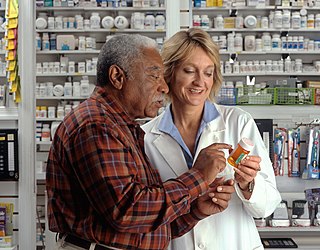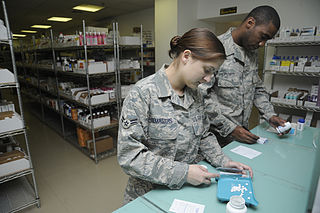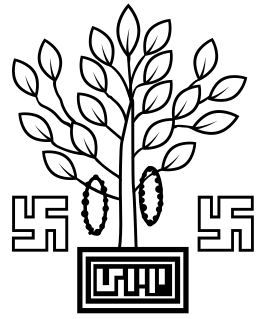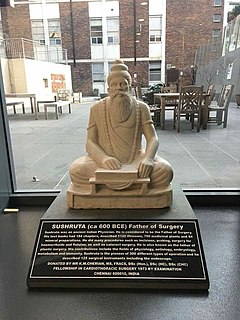
Pharmacists, also known as chemists or druggists, are health professionals who control, formulate, preserve and dispense medications and provide advice and counselling on how medicines should be used to achieve maximum benefit, minimal side effects and to avoid drug interactions. They also serve as primary care providers in the community. Pharmacists undergo university or graduate-level education to understand the biochemical mechanisms and actions of drugs, drug uses, therapeutic roles, side effects, potential drug interactions, and monitoring parameters. This is mated to anatomy, physiology, and pathophysiology. Pharmacists interpret and communicate this specialized knowledge to patients, physicians, and other health care providers.

Pharmacy is the clinical health science that links medical science with chemistry and it is charged with the discovery, production, disposal, safe and effective use, and control of medications and drugs. The practice of pharmacy requires excellent knowledge of drugs, their mechanism of action, side effects, interactions, mobility and toxicity. At the same time, it requires knowledge of treatment and understanding of the pathological process. Some specialties of pharmacists, such as that of clinical pharmacists, require other skills, e.g. knowledge about the acquisition and evaluation of physical and laboratory data.
A Doctor of Pharmacy is a professional doctorate in pharmacy. In some countries, it is a first professional degree and a prerequisite for licensing to practice the profession of pharmacy or to become a clinical pharmacist. In many countries they are allowed to practice independently and can prescribe drugs directly to patients. A PharmD program has significant experiential or clinical education components in introductory and advanced levels for the safe and effective use of drugs. Experiential education prepares graduates to be practice-ready, as they already have spent a significant amount of time training in areas of direct patient care and research.

A pharmacy technician is a health care provider who performs pharmacy-related functions, working collaboratively with a licensed pharmacist. Training, certification, licensing, and actual practice of pharmacy technicians varies not only worldwide but in some countries regionally as well as by employer.
The Master of Sciences of Pharmacy (MPharm) is the standard master's degree program in Pharmacy. It is the oldest honorable Diploma (Degree) authorized from the European Faculties of Pharmacy as it takes five years to complete. It is based on a credit system higher than the normal Bachelor of Pharmacy degree. It is different from the American Pharmaceutical Diploma, Doctor of Pharmacy,(PharmD), that takes 4 years to complete. The Faculty is a member of the Association of European Faculties of Pharmacy and its graduates meet all the requirements for the profession as defined by the European Union. In the initial three years students revise and broaden their knowledge of elementary natural and medical subjects to the level required for understanding specific subjects from the field of Pharmacy. Students attend lectures and seminars and take part in practical pharmacy placements. During the last year of study they work on their thesis. The program is concluded by defending the thesis and taking the final state examination. Then the students are awarded the master's degree. The study program is compliant with EU directive 2005/36/EC. Graduates awarded the master's degree can later sit for a thorough state exam including an advanced thesis defense. After passing they are awarded the "Testing Board" degree. Graduates can apply for postgraduate after studying several branches of Pharmacy in the five accredited years. After defending their dissertation, submit their researches in their selected branches of Pharmacy and passing the final state examination they are awarded the degree. The master's program is offered in different specialized areas, one major being Clinical Pharmacy. Clinical pharmacy specialization enables pharmacists to deliver higher levels of clinical services. In some countries these specializations are happening with residency programs.
A Bachelor of Pharmacy is a undergraduate academic degree in the field of pharmacy. In many countries, this degree is a prerequisite for registration to practice as a pharmacist. Since both PharmB and PharmD are prerequisites to license in most western countries they're considered equivalent. In many western countries, the foreign graduates with BPharm, PharmB or BS Pharm practice similarly as PharmD graduates. It is analogous to MBBS vs. MD where MBBS is foreign equivalent of MD. It is training to understand the properties and impacts of medicines and developing the skills required to counsel patients about their use.

National Institute of Pharmaceutical Education and Research, S.A.S. Nagar, also known as NIPER Mohali, is the Topmost Pharmaceutical research institute in India & the main campus of the group of seven NIPER institutes, under India's Ministry of Chemicals and Fertilizers. The institute offers Masters and Doctoral degrees in pharmaceutical sciences. As an Institute of National Importance it plays an important role in the Human Resource Development for the ever-growing Indian Pharmaceutical industry, which has been in the forefront of India's science based industries with wide-ranging capabilities in this important field of drug manufacture. The institute offers a 2-year PG degree & 4-5 year PhD Courses in 13 disciplines;

The Appalachian College of Pharmacy (ACP), formerly known as the University of Appalachia, College of Pharmacy, is a private doctoral pharmacy school located in Oakwood, Virginia. The school, established in 2003, is Virginia's only three-year accelerated Doctor of Pharmacy program. ACP's mission is to improve the health outcomes of rural and underserved communities, particularly those in Central Appalachia, through education, service, and scholarship.
In India, Diploma in Pharmacy is an entry-level tertiary pharmacy credential. It is obtained following two-year of training. Students can enroll in the course after successfully completing higher secondary education in science stream with physics, chemistry and either biology or maths as subjects. After obtaining the diploma, registration with the pharmacy council is required to be a registered pharmacist. A D.Pharm holder can also enroll for a professional (undergraduate) degree course of Bachelor of Pharmacy via lateral entry scheme.
Pharmacy residency is education a pharmacist can pursue beyond the degree required for licensing as a pharmacist. A pharmacy residency program allows for the implementation of skill set and knowledge acquired in pharmacy school through interaction with the public either in a hospital setting or community practice. The program is done over a span of about 2yrs after graduation from pharmacy school and licensure as a pharmacist. Pharmacy residency helps improve the resume of a pharmacist so as to increase chances of obtaining employment outside community practice. A 2022 review suggested that there is sufficient evidence that residency develops key competencies for junior pharmacists.

The Campbell University College of Pharmacy & Health Sciences is an American pharmacy school founded in 1985 by Dean Ronald Maddox and located in Buies Creek, North Carolina. The College is one of seven schools that compose Campbell University. In 2009, the school's name was changed to Campbell University College of Pharmacy and Health Sciences.
The basic requirement for pharmacists to be considered for registration is an undergraduate or postgraduate pharmacy degree from a recognized university. In many countries, this involves a four- or five-year course to attain a master of pharmacy degree (MPharm). In the United States of America, students graduating after January 1, 2003, must complete a doctor of pharmacy degree to become a licensed pharmacist. This same requirement has been coming into place in other countries such as Canada and France.

The University of Florida College of Pharmacy is the pharmacy school of the University of Florida. The College of Pharmacy was founded in 1923 and is located on the university's Gainesville, Florida main campus. The college offers the entry-level Doctor of Pharmacy (Pharm.D.) degree as the first professional degree for students entering the profession. The college offered a Working Professional Pharm.D. (WPPD) program for bachelor's-trained pharmacists already in practice with its last cohort of students enrolled in 2016. Additionally, various graduate degrees are offered. The professional program is fully accredited by the American Council on Pharmaceutical Education. Since 2011 the college has been offering online degree programs at the graduate level, such as the Forensic Science Program, Pharmaceutical Chemistry Program and Clinical Toxicology Program. In total the College of Pharmacy received over $28.3 Million in total Research Revenues in 2019.

Rajasthan University of Health Sciences is a State university located in Pink City Jaipur, Rajasthan, India. It was established on 25 February 2005 under The Rajasthan University of Health Sciences, 2005 and started functioning in January 2006. It has its own college and acts as affiliating university to all Government & Society run [Also supports them in academic and research purposes] and some privately run medical colleges in Rajasthan.
The MHT-CET or Common Entrance Test is an annual entrance exam conducted by the Government of Maharashtra. It is conducted by the Directorate of Technical Education. The degree courses of the following streams are mainly accounted for in this entrance exam:
The General Pharmaceutical Council (GPhC) is the body responsible for the independent regulation of the pharmacy profession within England, Scotland and Wales, responsible for the regulation of pharmacists, pharmacy technicians and pharmacy premises. It was created, along with the Royal Pharmaceutical Society, in September 2010 when the previous body responsible for regulation, the Royal Pharmaceutical Society of Great Britain, was split so that representative and regulatory functions of the pharmacy profession could be separated.

Bihar Combined Entrance Competitive Examination Board (BCECEB) conducts competitive examinations and counsellings every year for admissions in various courses of Medical, Engineering and Agricultural streams in the Institutions of Bihar. It is constituted under Bihar Acts, 1995. Office of the board is situated in IAS Association Building, Patna.
Geraldine Michelle Moses, is an Australian doctor of clinical pharmacy, a consultant pharmacist, and an Adjunct Associate Professor of clinical pharmacy at the University of Queensland. She is a Senior Clinical Pharmacist at Mater Pharmacy Services in Brisbane.
The National Eligibility cum Entrance Test (Postgraduate) is a qualifying and ranking examination in India, for students who wish to study various postgraduate Doctor of Medicine (MD), Master of Surgery (MS) and diploma courses, in government or private medical colleges in the country. This exam replaced All India Post Graduate Medical Entrance Examination (AIPGMEE).

The standard entry-to-practice degree in modern medicine in India is the Bachelor of Medicine and Bachelor of Surgery (MBBS), Among Modern Medicine, Alternative System of Medicine in India Such as Ayurveda (BAMS), Unani (BUMS), Siddha(BSMS), Homeopathy (BHMS). MBBS a credential earned upon completion of a five-and-a-half-year undergraduate program. The curriculum is divided into one year of preclinical studies in general science subjects and three and a half years of paraclinical and clinical studies, followed by a one-year clinical internship. Before beginning the internship, students are required to pass several examinations, the final one of which is conducted in two parts. Graduate education in medical specialties typically takes three additional years of study after the MBBS and concludes with the award of the Master of Surgery or Doctor of Medicine(MD). Postgraduate diplomas in medical specializations may also be awarded upon the completion of two-year training programs.









